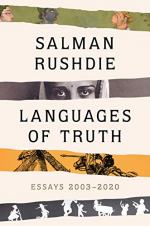
|
| Name: _________________________ | Period: ___________________ |
This test consists of 5 short answer questions, 10 short essay questions, and 1 (of 3) essay topics.
Short Answer Questions
1. As which of the following did Hitchens address Mos Def?
2. Which of the following does Rushdie cite in protest of a proposed UK law that would have forbidden criticizing religion?
3. What ranking among ArtReview’s list of powerful figures in the art world did Ai Weiwei hold?
4. Of what city’s organized crime does Roberto Saviano write?
5. From which of the following does Rushdie note All in the Family is adapted?
Short Essay Questions
1. Why does Rushdie argue that the Hinduism of the BJP is not true Hinduism?
2. To what does Rushdie ascribe the closeness of his friendship with Christopher Hitchens?
3. How does Rushdie propose readers fight against censorship and artistic repression?
4. In what does Rushdie situate the origin of auteur theory?
5. How does Rushdie define the “given” with which authors must contend?
6. How does Rushdie differentiate a “historical” fact from a “basic” fact?
7. What does Rushdie note is the right answer to give when asked about autobiographical fiction?
8. What does Rushdie note caused the characters drawn from his biography to come alive?
9. What does Rushdie note is the wrong answer to give when asked about autobiographical fiction?
10. Why does Rushdie note admiring Susan Orlean in regards to Adaptation?
Essay Topics
Write an essay for ONE of the following topics:
Essay Topic 1
Similarly, the lengths of chapters influence reading. What pattern of chapter-length is present in the anthology, if any? What effect does the length of chapters have on the reading? How is the effect achieved?
Essay Topic 2
What literary reference is the most important of Languages of Truth? How does the anthology support such an assertion?
Essay Topic 3
Readerly attention focuses on the following passage: “I believe that the books and stories we fall in love with make us who we are, or, not to claim too much, that the act of falling in love with a book or story changes us in some way, and the beloved tale becomes a part of our picture of the world, a part of the way in which we understand things and make judgements and choices in our daily lives” (3). Does the passage bear out? What in the anthology and in your experience suggests as much? How does it do so?
|
This section contains 645 words (approx. 3 pages at 300 words per page) |

|




